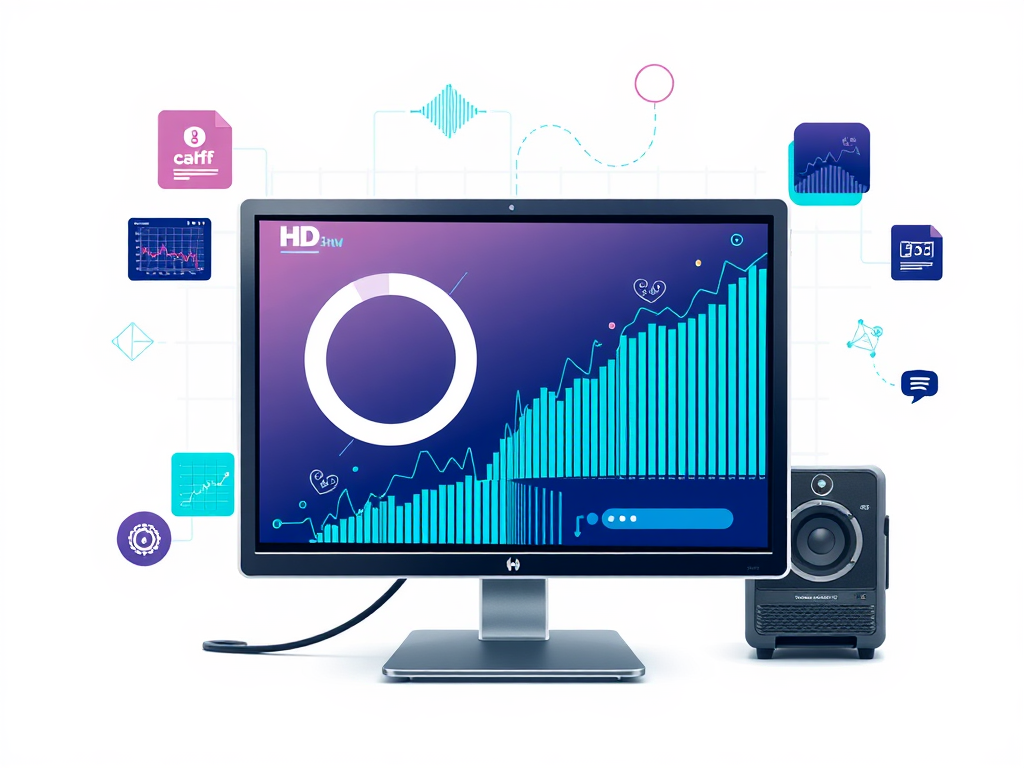Overview of Current Trends in UK Computing
The landscape of UK computing trends is rapidly evolving due to significant technological advancements and industry insights. Emerging technologies are reshaping the computing landscape with artificial intelligence (AI) and machine learning being at the forefront. These advancements are influencing various sectors by streamlining operations, improving decision-making processes, and enhancing efficiency through intelligent systems. For example, AI applications are being extensively integrated into healthcare and finance, transforming how these services are delivered.
Similarly, cloud computing is having a vast impact on UK businesses. By enabling scalable resources and storage options, cloud computing facilitates better collaboration and flexibility, allowing companies to operate more efficiently and cost-effectively. This shift has democratized access to powerful computing resources, enabling even small businesses to compete on a larger scale. The continuous development in cloud services, such as Software as a Service (SaaS) and Infrastructure as a Service (IaaS), is further pushing this trend.
Also read : Exploring the future: how innovative tech will revolutionize personal computing
Technology advancements in the UK are also being driven by growth in other cutting-edge areas. These include quantum computing developments, which promise unprecedented processing power and the ability to solve complex problems that were previously insurmountable. The UK is solidifying its position as a leader in global quantum research, setting the stage for breakthroughs that could revolutionize the tech industry in years to come.
As these trends continue to evolve, the UK remains a pivotal player in the global tech landscape, consistently driving innovation and adapting to the rapid pace of technological change. The ongoing investment in technology advancements promises to sustain this momentum and foster further growth in the sector.
Also to discover : Exploring the evolution of high-tech innovation in the uk over the years
Key Innovations Driving Change
The latest technological innovations in the UK are pioneering changes reflected in both software advancements and hardware breakthroughs. The integration of artificial intelligence (AI) into computing is reshaping this landscape significantly. AI’s ability to perform complex tasks has revolutionised industries by enhancing process efficiency, providing predictive analytics, and offering improved customer experiences. In the UK, sectors like retail, healthcare, and finance are utilising AI to personalise services and streamline operations.
Artificial Intelligence in Computing
AI applications have been transformative, particularly in industries such as healthcare, where machine learning models assist in diagnosing diseases with greater precision. For instance, AI-powered systems can analyse vast datasets quickly, improving patient outcomes by delivering more accurate and timely diagnostics. Such software advancements have positioned the UK at the forefront of AI technology adoption on a global scale.
Quantum Computing Developments
In tandem with AI, quantum computing is making strides, promising to enhance computing capabilities exponentially. The UK is asserting its prowess in global quantum research, focusing on creating machines capable of solving intricate problems beyond the reach of classical computers. These hardware breakthroughs are expected to revolutionise fields like cryptography, materials science, and complex modelling, leading to solutions unattainable until now.
Edge Computing Solutions
Moreover, edge computing is gaining traction as a practical approach for real-time data processing. This technology reduces latency by bringing computation and data storage closer to data sources, such as IoT devices. The implications for industrial automation and smart technologies are significant, as UK’s businesses can leverage this to process data locally, optimise bandwidth usage, and enhance response times, driving both operational efficiency and innovation.
Influential Companies in the UK Tech Scene
The UK tech scene is vibrant, with leading tech companies and UK startups pushing innovative solutions to the forefront. These firms are not only enhancing the local technology landscape but are also making significant strides on a global scale. Among them, several innovation leaders are known for advancing the diverse array of technological fields, from AI to fintech, leveraging their expertise to create cutting-edge products and services.
Startups play a critical role in reshaping the industry by exploring technological advancements that larger companies might not tackle due to their size or focus on existing products. These nimble enterprises are driving innovation by experimenting with new technologies and industry insights that could potentially redefine the market. It’s the agility and fresh perspectives of these startups that foster a dynamic environment conducive to groundbreaking discoveries and solutions.
Furthermore, collaborative partnerships within the industry serve as a catalyst for growth, allowing companies to pool resources, share knowledge, and tackle complex challenges. These alliances often lead to the development of robust tech ecosystems, where participants benefit from collective expertise and innovation.
In this ecosystem, synergy among UK computing trends, tech giants, and start-ups plays a pivotal role in adhering to the fast-evolving industry demands, ensuring the UK’s position as a major player in the global tech arena. This collaboration positions these companies to continually push the boundaries of what’s possible, steering the industry toward a future brimming with potential.
Case Studies of Successful Tech Implementations
Examining successful technology implementations in the UK provides valuable insights into how modern advancements are applied effectively across industries. Real-world applications showcase the transformative potential of technological innovations, demonstrating their impact on various sectors and enhancing overall efficiency.
AI in Healthcare
Artificial Intelligence is revolutionizing healthcare through notable success stories where AI-driven tools have significantly improved patient care. For instance, AI algorithms are being used to analyze medical images with high precision, potentially identifying diseases like cancer earlier than traditional methods could. The application of AI in predicting patient outcomes also allows for more tailored treatment plans. These advancements exemplify how AI is not only streamlining diagnostics but also enhancing clinical decision-making processes, ultimately improving patient outcomes.
Fintech Innovations
In the financial sector, fintech innovations are transforming how services are delivered to consumers. Advanced algorithms are enabling more accurate credit scoring, tailored financial advice, and improved fraud detection. One exemplary case involves the use of AI in risk assessment, facilitating quicker loan approvals while minimizing defaults. By integrating machine learning, fintech companies in the UK are providing more personalized and efficient banking solutions, driving enhanced customer satisfaction and operational efficiency.
Sustainable Tech Solutions
Sustainability-focused technology is also gaining traction, with several companies undertaking initiatives to minimize environmental impacts. Innovative examples include the deployment of energy-efficient data centers and the development of smart grids that optimize energy consumption. The use of renewable energy sources within tech infrastructures is helping tech firms reduce their carbon footprint while also achieving operational cost savings. These solutions not only demonstrate a commitment to ecological responsibility but also highlight how sustainability can coexist with technological growth.
Overall, these case studies underscore the versatility and efficacy of technology implementations in addressing diverse challenges and needs across sectors.
Challenges Facing the UK Computing Industry
The UK computing industry is currently navigating a series of challenges that pose significant barriers to its ongoing growth and innovation. At the forefront of these challenges is a pronounced skills shortage within the technology workforce. Despite the rapid advance of technology, the demand for skilled professionals continues to outpace supply, leading to a gap that impedes progress. This shortage affects various sectors, including cybersecurity, data analysis, and software development, where specialised knowledge is crucial.
Cybersecurity concerns are another pressing issue, with businesses across the UK increasingly susceptible to complex cyber threats. These incidents range from data breaches to sophisticated cyber-attacks, necessitating robust security measures. Companies must invest heavily in advanced cybersecurity tools and practices to protect sensitive information and maintain trust with consumers. The rising incidence of cybercrime calls for continuous vigilance and innovation in defence mechanisms to secure digital infrastructure.
Additionally, economic factors are influencing tech investment in the UK, impacting how companies fund and implement new technologies. Uncertain market conditions and fluctuations in funding availability can deter innovation and slow down project developments. This economic context requires businesses to be strategic in allocating resources and exploring alternative funding mechanisms to sustain their momentum in adopting new technologies.
Overall, addressing these industry challenges is critical for the UK to maintain its position as a leader in the global tech landscape. It involves a concerted effort from educational institutions, government bodies, and industry leaders to equip the workforce with necessary skills and mitigate cybersecurity risks, all while navigating economic uncertainties.
The Future of Computing in the UK
As the UK continues to play a crucial role in the global tech landscape, several key future trends promise exciting advancements. In the realm of technology, understanding long-term impacts is essential for both industry leaders and policymakers.
Predictions for Advanced Technologies
Advanced technological predictions indicate that AI and quantum computing will further integrate into various sectors. Future innovations could pave the way for personalised healthcare, autonomous transport systems, and smarter financial technologies. These developments are expected to create new opportunities, but will also necessitate rethinking regulatory frameworks and data privacy measures.
The Role of Government in Tech Development
Government initiatives are vital for fostering technological growth. Supportive policies and investments can accelerate tech development, facilitating research collaborations and infrastructure enhancements. The UK government has shown a commitment to bolstering tech sectors, recognising their potential to impact economic growth and global competitiveness.
Community Engagement and Education
Promoting community engagement and expanding educational programs are essential for nurturing future tech talent. Initiatives focused on science, technology, engineering, and mathematics (STEM) education can help bridge the skills gap and inspire the next generation of innovators. By fostering a culture of learning and exploration, the UK can sustain its momentum as a tech hub while empowering individuals to contribute meaningfully to technological progress.

